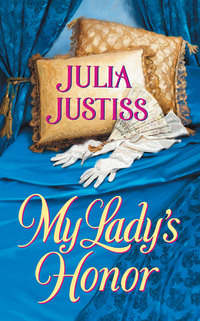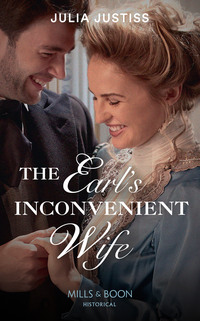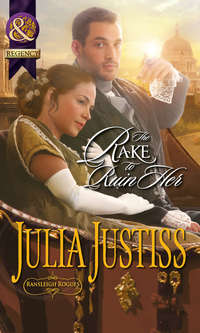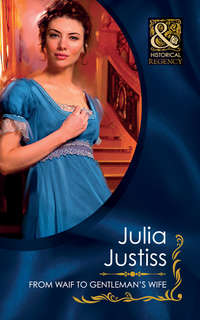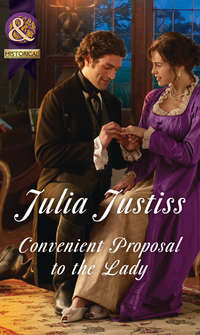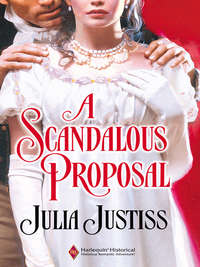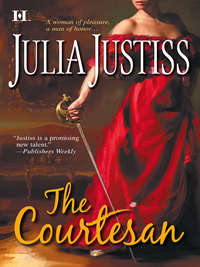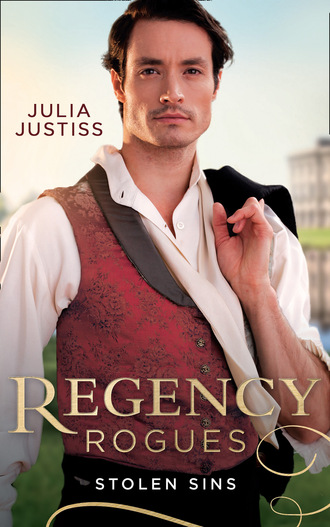
Полная версия
Regency Rogues: Stolen Sins
She shook her head. ‘Most of what I know comes from my father and his associates—who see you as a rising star in the Whigs. My father, who does not praise lightly, has several times lamented that Lord Newville managed to snag you for the Reform cause before he could persuade you to join the Tories. I am honoured to make the acquaintance of a man so esteemed by my father!’
And she was—awed enough at meeting the man even his opponents spoke of as likely one day to become Prime Minister that for an instant, she forgot his physical allure.
But only for an instant. With her next breath, the shock of learning his identity was once again subsumed in awareness of the powerful attraction he generated.
What a combination! she thought dazedly. That intense masculine appeal embodied in a man pursuing a career she admired above all others. And despite what he’d said, there was something of the wicked about him.
Rather than preening a bit at her obvious admiration, though, as most men world, he seemed somewhat discomforted—an unexpected display of modesty that only enhanced his charm.
She barely suppressed a sigh, immobilised by eyes that seemed to look deep into her soul.
‘Thank you for the compliments, though I’m sure I do not deserve them,’ he said after a moment, as if only then realising that they’d spent the last several minutes just gazing at each other. ‘And forgive me for speaking slightingly of George. From the article I read recently in the Morning Post, it appears I should wish you happy?’
‘Wish me happy?’ she echoed. As his meaning grew clear, irritation flashed through her. ‘Certainly not! As a member of my father’s Tory caucus, I see Mr Hadley quite often, but there’s no understanding between us. Newspapers!’ She shook her head impatiently. ‘The gossips have been pairing me off ever since I came out of mourning.’
‘So you are not about to bestow your hand on my half-brother?’ At her negative shake of the head, he smiled again—that brilliant smile that made her stomach do little flips and curled her toes in her half-boots. ‘I have to admit, I am glad to hear it.’
No female he smiled at like that would ever look at his half-brother. Dazzled, she said without thinking, ‘George Hadley isn’t looking for a wife, but someone to reflect his glory, and I make a very poor mirror.’
Not until those honest but appallingly indiscreet words exited her lips did she realise how much Giles Hadley had unsettled her. She seldom voiced unflattering assessments of her acquaintances, and never to a stranger.
Flushing with mortification, she said, ‘Pray, excuse me! That was most unkind, and I should never have said it.’
‘Even if you know it to be true?’
‘Whether or not it is true is irrelevant,’ she shot back, flustered. ‘I am not generally so critical. Or at least, I seldom utter such criticisms aloud,’ she amended more truthfully.
‘Then I am all the more honoured by your honesty. And relieved, I must say. Women usually find George charming.’
‘Truly?’ She frowned, replaying in her mind’s eye a typical exchange with the man. ‘Perhaps with ladies he wishes to charm. When we converse, he always seems to be looking towards my father, as if he’s much more interested in Papa’s approval than in mine.’ She made a wry grimace. ‘Makes me feel rather like a prize pullet he’s bartering to install in his hen house. And I should not have said that, either.’
Hadley laughed. ‘If that’s true, he’s even more a fool than I thought—and I should not have said that! But there’s bad blood between us, as I imagine you know.
‘So I understand. I always find it sad when there is a dissension within a family.’
A bit more than dissension—there’d been a scandal of rather large proportions, she knew, although she’d heard none of the particulars. Hardly to her surprise, he did not attempt to enlighten her.
Before she could introduce some safer topic, her cousin’s aide, John Proctor, rushed into the room. ‘Lady Margaret, are you all right?’ he cried. ‘Armsburn and I have been looking everywhere for you! When I heard about the ruckus on the square, and then couldn’t find you…’ He exhaled a shuddering breath. ‘I knew Michael would have my head for leaving you on your own, had you been harmed or even frightened! Please, forgive me!’
‘Nothing to forgive,’ she replied. Except his arrival, which would doubtless mean an end to her interlude with this fascinating gentleman. ‘Mr Hadley took good care of me.’
The two men exchanged bows. ‘Hadley, we are much in your debt for safeguarding Lady Margaret,’ Proctor said.
‘It was my pleasure,’ Hadley replied. ‘I’d advise you to take better care of your lovely canvasser in future, though. If I find her wandering unattended again, I might just keep her.’
His words, and the beguiling smile he directed at her as he said them, sent a little zing of pleasure through her. Empty gallantry, she told herself, trying to fight the effect.
Before she could try to determine how genuine the compliment might be, Proctor took her arm and all but tugged her out of her chair. ‘Can I escort you back now, Lady Margaret? Your cousin is most anxious.’
‘I wouldn’t wish to worry Michael, of course.’ With regret, she turned to her rescuer. ‘I very much enjoyed our conversation, Mr Hadley. Despite holding opposing views, I hope we may continue it at some time in future.’
‘You could not desire it more fervently than I! Good day, Lady Margaret,’ Hadley said, and bowed over her hand.
As his fingers clasped hers, her heart fluttered and a flush of heat went through her. It took her a moment to remember to pull free from his grasp.
‘Good day to you, Mr Hadley,’ she said faintly, acutely conscious of his gaze on her as she walked out.
She would like to meet him again, she thought as her cousin’s aide escorted her through the taproom. Though it would be better if she did not. She cringed inwardly as she recalled the unguarded words she’d let slip about his half-brother. A man mesmerising enough to cause her to suspend all of her breeding and most of her common sense was best avoided.
But oh, how he stirred her mind and excited her senses!
‘I hope you weren’t too friendly with Hadley,’ Proctor said after he’d helped her into the carriage.
‘Since when do I become “friendly” with men I hardly know, John?’ she replied sharply.
Proctor held up a restraining hand. ‘Please don’t be offended, Lady Margaret! I know it’s not my place to question your behaviour. But Michael—and your father—trust me to watch out for you. I’d have you steer clear of Hadley. He’s a dangerous man.’
‘Dangerous—how? Surely you don’t believe all that nonsense about the Hellions! My father told me he admires him.’
‘His own half-brother refuses to associate with him, and he’s completely estranged from his father. His views are extreme, even for a Radical: he’d give the vote to every man in England, from the highest lord down to a common stew from the London slums. I’ve heard he even favours abolishing the House of Lords entirely!’
‘Shocking, certainly,’ she allowed, unsettled to have the radical nature of his positions confirmed—if what Proctor said was true. ‘But Papa has always favoured an open exchange of views, even if the two parties cannot ultimately agree. I doubt I could be endangered just by talking with him.’
‘Perhaps. But a man with such extreme political views might have equally radical social ideas—advocating Free Love and the abolishment of marriage, perhaps. I wouldn’t trust a lady in his company, certainly not alone in a private room.’
Did Hadley believe in Free Love? No wonder he seemed wicked! The naughty idea sent a spark through her still-simmering senses. Oh, she could readily imagine making free with him!
She shook her head to rid her mind of the lusty—and pointless—thought. She had nothing more erotic in mind for her future than directing Papa’s dinners—and perhaps throwing a kiss to a voter.
Turning back to Proctor, she said, ‘At a busy inn, with the door to the taproom standing open? Hardly a convenient site to lure someone into impropriety. Although I wouldn’t mind debating Free Love and the abolishment of marriage with him,’ she added, watching Proctor’s face.
At his look of horror, she laughed. ‘Relax, John, I’m teasing! Though it serves you right, trying to lecture a woman of my age about her behaviour. How did the canvassing go? Does Michael think he’ll hold against Reynolds?’
It took only that bit of encouragement to launch Proctor into a detailed explanation of how the campaign had fared in the rest of the town.
Normally, Maggie would have listened with rapt attention. Today, however, her mind kept drifting back to a certain gentleman with vivid blue eyes and a seductive smile that had made her feel more like a desirable woman than she had since…since the debacle with Sir Francis.
That memory ought to apply a fast brake to this runaway carriage of attraction. Recalling Hadley’s flowery last words, she frowned.
Of course it had been gallantry. What else could it have been? They’d barely met, after all. And handsome as he was, he surely was accomplished in the fine art of flattery, and of persuading women who should know better that he found them more desirable than he did.
She sighed. It seemed she was a slow learner.
And yet… She had not imagined the spark that flared before them. She might have little experience, but she could still remember that enchanted time, when love for her childhood companion Robbie had transformed into something more, a layer of desire enveloping the friendship and tenderness. Ah, the mesmerising beauty of touch, the thrill of surrendering to passion, the ecstasy of possession.
How she ached for its loss!
No, she was not imagining the physical response she’d felt. But did Hadley truly find her desirable? Since an affair was too dangerous to contemplate, was there any point in pursuing this further?
Common sense warned to avoid a man who might prove such a temptation. But surely life was meant to be experienced, not hemmed in by caution. Such pleasures as it presented should be grasped greedily, before they were snatched away—losing Robbie had taught her that, too.
She was seven-and-twenty, a widow unwilling to risk her heart by marrying again, and she might not have many more opportunities to be tempted.
His seductive person aside, Hadley was a fascinating man, with views and values she would be interested to debate. From the not-so-flattering words his half-brother had dropped about him, she’d expected he might be something of a wild man, and he did have an untamed essence about him. An aura of purpose, too, with a trace of impatience, as if he were in a great hurry to do important things. And there was more than a trace of anger smouldering under the surface, particularly when he mentioned his half-brother.
Or was that just the passion that seemed to simmer in him? Recalling it sent a response swirling through her, and suddenly the carriage seemed too hot.
Yes, she would see more of him, she decided. He addressed the Commons frequently, her father said. Popular as he was, there was no question that he would be re-elected to the next Parliament. If she visited the Ladies’ Gallery after the sessions began again in June, she would surely hear him speak.
Before she heard more of his politics, though, she ought to learn more about the man. If he truly were dangerous, it would be best to know beforehand just how much of a risk he might pose.
But who to ask? Papa, who abhorred gossip, would be unlikely to tell her more than the bare minimum about Hadley’s background.
Then she recalled just the person who would happily spill every detail she might want to know. As soon as she returned to London, she decided, she would pay a call on her great-aunt Lilly.

Lounging in his chair, Giles took his time finishing the home brew, which was as excellent as advertised. So he’d met the renowned Lady Margaret—and found her as witty and even more attractive than Davie had pronounced her.
He had to admit, he’d hoped to see her. When the four friends had drawn up that list of the boroughs to canvass, he’d chosen this one because it was known to be controlled by her father—and she was known to often canvass on behalf of his candidates. After the discussion of the possibility that she might marry George, and Davie’s description of her, he’d been curious to meet the woman.
As he’d approached her carriage, he’d been impressed by her engaging smile and the ease with which she mingled with the crowd, by her obvious enjoyment of bantering with them and their enthusiastic response to her.
And then he’d caught her eye.
He shook his head, bemused. Some curious sort of energy had flashed between them, literally stopping him short. Despite the press of people, the babble of voices, the stamping of hoofs and rattle of passing carriages, he’d had the ridiculous feeling that nothing existed in the world but the two of them.
He didn’t remember walking closer, but suddenly he was beside her, unable to keep himself from smiling, compelled to touch her—even if all that was permissible was for him to shake her hand.
He hardly recalled what he’d said to her during their interlude at the inn, and could only hope it hadn’t been utter nonsense. He remembered only two salient points from their conversation: her father approved of him and she wasn’t going to marry George.
The relief he felt about the latter was surely excessive.
He couldn’t recall ever feeling such a powerful and immediate connection to a lady—and had no explanation to account for it. She wasn’t a beauty in the traditional sense. Her hair was chestnut, not gold, her figure rather taller than average, her face longer than oval, with a generous mouth and pert nose decorated with freckles. But something in those vivid green eyes had sparked a physical attraction that went straight to his loins and drew him to her like a thirsty man to a cool, clear stream.
Though he was too bitterly conscious of his mother’s fate ever to become a rake, he was hardly inexperienced, having enjoyed his share of discreet liaisons, always careful to take precautions to protect the lady. He wasn’t some green lad just out of university, susceptible to being bowled over by an attractive woman.
In sum, he couldn’t figure out what it was about Lady Margaret that had struck him so profoundly.
He did know he would seek her out again, if only to see if his unprecedented reaction would recur a second time. Or whether upon further acquaintance her attractions would seem no more remarkable than those of any other pretty, intelligent lady.
He paused a moment, frowning. Although Lady Margaret had emphatically disclaimed a relationship, if the newspapers had been puffing off a possible match between her and George, they must have been given some encouragement for the notion—very possibly from his half-brother. Marrying into an important political family would be just the sort of thing George would see as a prudent step towards the career as a government leader he coveted.
The prize pullet he’s bartering to install in his hen house. Giles recalled her words with a chuckle. She certainly deserved better than that.
If associating with a woman George might have marked as his own caused problems with his half-brother, so be it. Pursuing this fascinating lady would depend on his—and her—inclinations alone.
Chapter Two
A week later, the butler ushered Lady Margaret into the front parlour of the Grosvenor Square town house of her great-aunt, the Dowager Countess of Sayleford. ‘I’ve ordered a full pot of tea and a plate of biscuits to sustain us,’ her great-aunt declared after receiving her kiss on the cheek. ‘Make yourself comfortable, and tell me all about the campaign in Chellingham.’
As her great-aunt knew well, her preferred topic of conversation would normally be the elections. Though Maggie was fairly bursting with curiosity about Giles Hadley, she didn’t want to open herself to the questions—to which she didn’t have answers—Aunt Lilly would certainly fire at her if she delayed discussing politics to make enquiries about a gentleman.
So, though she had shockingly little interest in conveying the results in Chellingham, she dutifully gave a brief recitation of what had happened in the campaign.
‘Glad to hear Armsburn held the seat,’ her great-aunt said. ‘My sources with an ear to Parliament tell me that one of the Grey’s government’s primary aims will be to eliminate boroughs like Chellingham that are controlled by the local landowner.’
‘Yes, and I’m afraid it’s virtually certain a bill to that effect will pass. I found the county full of inflammatory rhetoric! Even in normally placid Chellingham, there was alarming…disruption.’
‘Disruption?’ her great-aunt repeated, frowning. ‘What do you mean? Surely you weren’t endangered!’
‘No, not really. Oh, there was a scuffle in the street next to my carriage between two rival parties, some of whom had imbibed more ale than was good for them,’ she admitted. ‘In any event, I was quickly rescued by a most charming gentleman.’
Her great-aunt’s frown deepened. ‘Where were Michael and Proctor? I would have expected them to rescue you, if rescuing were needful.’
‘They were at another gathering place when the incident happened.’
‘Your father will not be happy to hear that.’
‘No, but there was no harm done, so you mustn’t tell him.’
Her great-aunt eyed her for a long moment before finally nodding. ‘Very well, it that’s what you wish. So, who was this “charming gentleman” who protected you when your kin failed in their duty?’
‘Another Member of Parliament—from the opposition, actually.’ Trying to keep her tone as neutral as possible, she said, ‘Mr Giles Hadley.’
Her great-aunt’s eyes widened. ‘Giles Hadley—you mean Viscount Lyndlington?’
At her nod of assent, her great-aunt continued, ‘Oh, my! Charming, you say? To hear some of the rabid Tories tell it, he’s the devil incarnate!’
‘His half-brother often paints him in that light. But Papa admires him, and I give far more credit to his opinion. It did make me curious, though—the difference between Papa’s view of him and his brother’s, and I do wonder what happened to create such a breach in the family. I’m sure Papa knows, but I didn’t think he would tell me much.’ She grinned at her great-aunt. ‘Whereas, I knew you would tell me everything!’
‘What did you think of Hadley?’ came the unexpected response.
Caught off guard, to her irritation, she found herself flushing. ‘I suppose it’s obvious I found him attractive.’
Her great-aunt raised her eyebrows, a mischievous twinkle in her eye. ‘Since I cannot remember you ever enquiring about any other gentleman, I’d already assumed as much. Excellent! It has been six years since you lost Robbie. More than time enough for you to be moving on.’
‘Don’t be thinking that, Aunt Lilly!’ she protested, raising a hand. ‘I’m not angling for another husband!’
‘Why not? You’re still young, and attractive, and it’s more than time enough for you to be over your disappointment about Sir Francis. And your grief.’
Once, she’d hoped Sir Francis might help her bury the grief—and look how disastrously that had ended. Both episodes being still too painful for her to discuss, she ignored the question, saying instead, ‘I found Giles Hadley…fascinating, that’s all. Those compelling blue eyes seem to look deep within you. There’s a restless energy about him, a sense of anger lurking beneath the surface, to say nothing of what I understand are quite radical political views. He’s certainly different from any other gentleman I’ve known! And yes, he does…attract me. But I’m not about to do anything foolish.’
Her great-aunt looked at her speculatively. ‘You are a widow now. I don’t advocate foolishness, but with discretion, you can do what you want—marriage, or not.’
‘All I want right now is to know more about his circumstances. It’s rather obvious that his half-brother hates him. Not that I’ve discussed him with George, but whenever the opposition is brought up, he never loses the opportunity to get in a dig about his half-sibling. I suspect much of his spleen stems from knowing the viscount will inherit, even though George is the brother favoured by their father. But why, Aunt Lilly? What happened to fracture the family?’
‘It’s an old and quite interesting scandal.’
‘About which, I am sure, you know all the details.’
‘Naturally.’ Her great-aunt smiled. ‘What other benefit is there in having lived so long in the midst of society?’
‘So—what happened?’
‘It began many years ago, just after the current earl inherited. He and his best friend courted the same woman—Giles Hadley’s mother. She loved the friend, not the young earl, but the friend was a younger son with no title or income, and Randall Hadley, already Lord Telbridge, would have both. The friend intended to go to India and make his fortune, but the girl’s family, which was in dire financial straits, wouldn’t let her wait on the possibility that he might one day return a nabob. Understandable, really; he might just as well die of a fever, or be killed in one of the native wars. They pressured her into agreeing to marry Telbridge, which she did ten days after the friend left for India.’
‘Poor lady,’ Maggie said, thinking of how awful it would have been if family duty had forced her to marry someone other than Robbie. ‘And then?’
‘All was well until several years after the wedding, when Telbridge somehow learned that his wife and the friend had stayed alone together at a hunting cottage the night before he left for India. Pressed by the earl, his wife would not deny that they had been lovers—and that she could not therefore assure the earl with perfect certitude that the son she bore him nine months after the wedding was in fact his. Wild with jealousy and anger, he sent them both away. Deaf to any pleas of reason, he divorced her and cut off all support—funds, lodging, even schooling for the boy. He remarried soon after the divorce bill was passed by the Lords, and has since devoted all his wealth and affection to the son of his second wife. As far as I know, Telbridge has not set eyes on the viscount in years. But all the rancour in the world will not alter the fact that since Giles Hadley was born after Telbridge married his mother, and was acknowledged for several years as the earl’s son, under law, he will inherit, for all that Telbridge now shuns him.’
Maggie shook her head. ‘Poor boy! No wonder he refuses to use his courtesy title. But from what you say, he grew up with no resources at all. I would expect him to be a simpleton or a savage, but he seems quite cultured. Did his mother’s family step in to help?’
The dowager smiled thinly. ‘Though admittedly, the scandal of the divorce placed them in an awkward position, I’ve always held that blood should care for blood. The girl’s parents, however—doubtless with a glance over their shoulder at the financial boon the earl had provided them upon the marriage—disowned her. The boy might have grown up a savage, but for the intervention some years later by his aunt who, once she married, persuaded her husband to sponsor the boy and raise him as befitted his station.’
‘Lord Newville?’ she asked. ‘Papa told me he had taken Mr Hadley under his wing.’
‘Quite. The Newvilles took care of mother and son, financed Hadley’s schooling, and sponsored his candidacy into Parliament. After what he suffered at his father’s hands, it’s not surprising he turned into a Radical, committed to limiting the power of the aristocracy.’
‘What happened to the lady?’
‘By all accounts, she was content, living in rural isolation with her son. I expect she hoped that one day the man she loved would return for her. But as it turned out, her family was right about that, if little else. He died in India several years after her divorce, and she did not long outlive him.’


